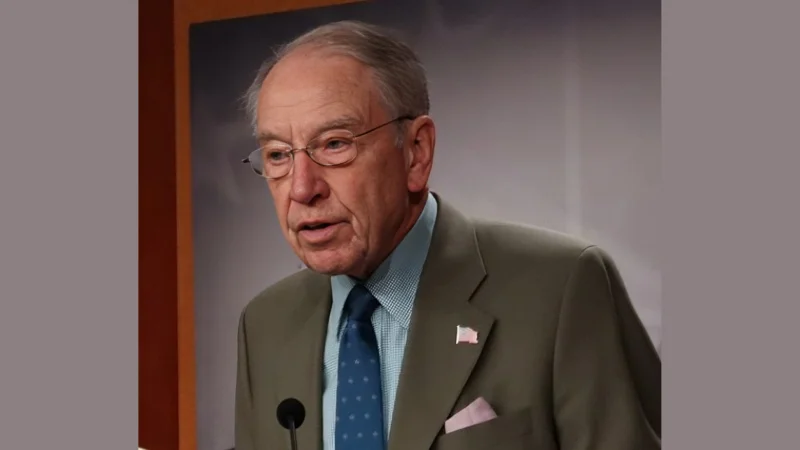Senator Chuck Grassley, Chairman of the Senate Judiciary Committee and the only grain farmer in the Senate, led a hearing to discuss how market consolidation is affecting production costs for family farmers. The session also addressed rising fertilizer prices and a lack of transparency following the discontinuation of annual industry reports in 2014.
Grassley’s proposed Fertilizer Research Act aims to address gaps in reporting on fertilizer markets. During the hearing, he said, "Mr. Rosenbusch, in 2014, the Obama administration discontinued annual reports on the fertilizer industry. Since then, prices have become more and more opaque, making it harder for farmers to know if they’re getting a fair deal.
My Fertilizer Research Act seeks to fill in these reporting gaps. So, could you tell us what measures are being taken to ensure transparency in pricing mechanisms, so farmers aren’t unfairly penalized by last-minute price increases?"
Witnesses included Iowa farmers Noah Coppess from Coppess Family Farms and John Latham from Latham Quality Seeds. Grassley asked them about how consolidation has affected their businesses and seed variety availability.
Latham noted that royalties as a percentage of seed bag cost have increased from 42% five years ago to 70% today. He cited data from the U.S. Department of Agriculture Economic Research Service showing that Bayer and Corteva together account for over half of U.S. sales of corn, soybean, and cotton seeds.
Grassley submitted letters and statements from groups such as the Iowa Corn Growers Association into the record.
The CEO of The Fertilizer Institute testified on behalf of its members with significant workforces in Iowa—including Bayer and Corteva.
Grassley also questioned Dr. Diana Moss from the Progressive Policy Institute; Caleb Ragland, President of the American Soybean Association; Corey Rosenbusch, CEO of The Fertilizer Institute; and Andrew LaVigne, President and CEO of the American Seed Trade Association.
During questioning on price transparency Grassley asked Dr. Moss: "Dr. Moss, in your opinion, what types of public reporting could provide the necessary transparency in fertilizer markets for farmers looking to get a fair price?"
Addressing market consolidation’s impact on business operations Grassley stated: "Mr. Latham and Mr. Coppess, major mergers and business transactions over the last decade reduced the ‘Big 6’ ag companies to only four... What impact does this have on your business? Has there been an impact on the number of corn and soybean varieties available to farmers?"
He also discussed competition issues regarding trait stacking: "Dr. Moss, in your opinion, if a trait owner conditions access in ways that predictably raises rivals’ costs or limits stacking with competing traits—is that a problem? And should it trigger enforcement?"
Further questions focused on contractual barriers for seed stacking: "So I'm going to ask Mr. Latham... Are there still contractual or technical barriers that keep you from offering a seed with a competitor’s trait stacked alongside another? Could you describe specific clauses and data obligations that get in the way?"
On intimidation tactics reported by farmers Grassley asked Mr. Coppess: "Could you give us some details of recent incidents where a supplier or retailer used rebate leverage or allocation delays to punish switching?"
Antitrust disagreements among seed companies were raised with Mr. LaVigne: "Is there disagreement among your members regarding antitrust and intellectual property issues laws and enforcement?"
National security risks associated with foreign ownership were discussed: "Only one of four largest companies controlling ag market is U.S.-owned... does this represent any national security risk to our country?" he asked Dr. Moss, Mr. Rosenbusch and Mr. LaVigne.
To prevent domestic monopolies when duties restrict foreign suppliers Grassley questioned safeguards supported by The Fertilizer Institute: "What specific safeguards would [you] support to prevent a de facto domestic monopoly..."
On licensing practices related to innovation versus restricting competitors he queried Dr. Moss about support for Fair Reasonable And Non-Discriminatory (FRAND) agreements.
Finally Grassley addressed generic insect resistant traits not materializing after patent expirations asking why no generic IR traits are available despite existing frameworks.









